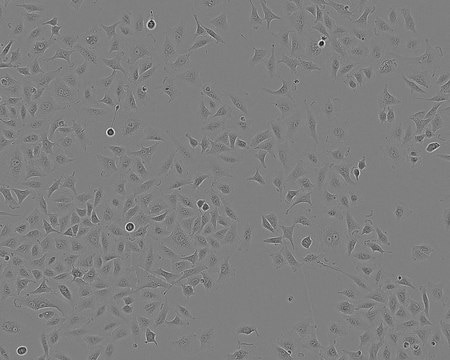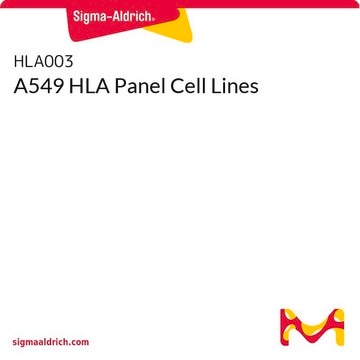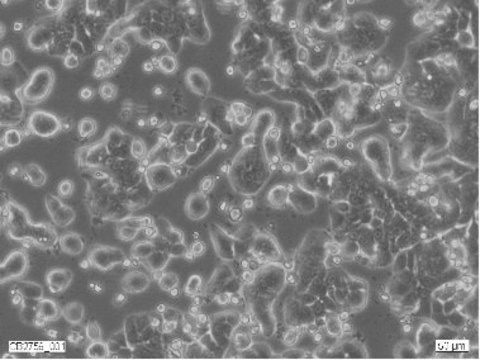NCI-H292
91091815, human lung, Epithelial
Synonym(s):
H292 Cells, NCI-HUT-292 Cells
Sign Into View Organizational & Contract Pricing
All Photos(1)
About This Item
UNSPSC Code:
41106514
Recommended Products
product name
NCI-H292, 91091815
biological source
human lung
growth mode
Adherent
karyotype
Modal no. 47
morphology
Epithelial
products
Not specified
receptors
Not specified
technique(s)
cell culture | mammalian: suitable
relevant disease(s)
metastasis
shipped in
dry ice
storage temp.
−196°C
Related Categories
Cell Line Origin
Human lung, mucoepidermoid carcinoma
Cell Line Description
Derived from a cervical node metastasis of a pulmonary mucoepidermoid carcinoma from a 32 year old female. Cells retain mucoepidermoid characteristics in culture and support replication of Hepatitis B virus. Some of the cells contain numerous small mucin-containing granules and are L-DOPA decaroxylase negative. This cell line has been selected as a prototype for transfecting subgenome fragments into human cells for studying the role of HBV and its individual genes in the pathogenesis of viral hepatitis and liver cancer. The cells are mucicarmine positive and also stain positively for keratin and vimentin but negative for neurofilament triplet protein. Ethnicity: Black.
Application
NCI-H292 has been used to determine the ability of the cell line to support the replication of mumps virus.
DNA Profile
STR-PCR Data: Amelogenin: X
CSF1PO: 10
D13S317: 11,12
D16S539: 9,13
D5S818: 13
D7S820: 10
THO1: 8
TPOX: 8,11
vWA: 16,17
CSF1PO: 10
D13S317: 11,12
D16S539: 9,13
D5S818: 13
D7S820: 10
THO1: 8
TPOX: 8,11
vWA: 16,17
Culture Medium
RPMI 1640 + 2mM Glutamine + 10% Foetal Bovine Serum (FBS).
Subculture Routine
Split sub-confluent cultures (70-80%) 1:3 to 1:10 i.e. seeding at 1-3x10,000 cells/cm2 using 0.25% trypsin or trypsin/EDTA; 5% CO2; 37°C.
Other Notes
Additional freight & handling charges may be applicable for Asia-Pacific shipments. Please check with your local Customer Service representative for more information.
Certificates of Analysis (COA)
Search for Certificates of Analysis (COA) by entering the products Lot/Batch Number. Lot and Batch Numbers can be found on a product’s label following the words ‘Lot’ or ‘Batch’.
Already Own This Product?
Find documentation for the products that you have recently purchased in the Document Library.
Our team of scientists has experience in all areas of research including Life Science, Material Science, Chemical Synthesis, Chromatography, Analytical and many others.
Contact Technical Service


